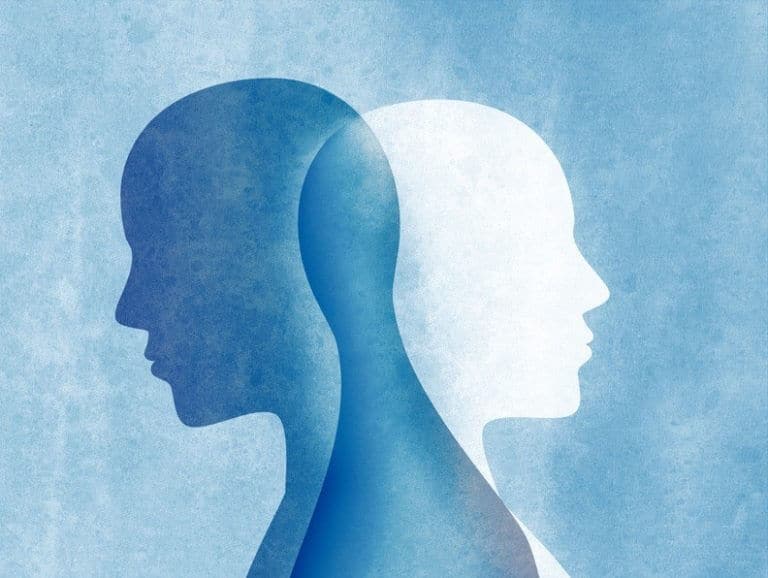Ketamine IV Infusion Therapy Can Rapidly Reduce Anxiety Symptoms
Approximately three million Americans currently suffer from Generalized Anxiety Disorder (GAD). Patients with anxiety disorders worry excessively...
The Benefits of IV Ketamine Infusion Therapy in Treating Eating Disorders
Eating disorders such as Anorexia nervosa and Bulimia nervosa are a type of mental illness focused on body image and restricted caloric intake. Yet the reality of eating disorders is anything but simple. Individuals coping with an eating disorder face a double threat: physical complications due to malnutrition and starvation and a high rate of suicide. In fact, EDs have the highest mortality rate of all mental illnesses.
Successfully treating individuals with eating disorders is unusually complicated, requiring simultaneous treatment of the psychological aspects of the disease and the physical difficulties of correctly reintroducing the body to normal amounts of food and nutrients. Recent studies indicate that including IV Ketamine Infusion Therapy into the treatment process can offer immediate and long-term relief from the obsessive habits and negative thought patterns at the root of many EDs.
Eating Disorders (ED) are a broad term for any mental illness that involves an abnormal and unhealthy relationship with food and eating. In some cases, an ED also involves an obsession with body image and weight. The American Psychiatric Association defines eight different types of ED; however, two of the most common and most difficult to treat are Anorexia Nervosa and Bulimia Nervosa.
Anorexia Nervosa and Bulimia Nervosa both involve extreme caloric restriction and an obsession with weight and body image. In the case of Anorexia Nervosa, the at-risk individual will simply refuse to eat sufficient calories, while Bulimia Nervosa involves recurrent episodes of binge eating followed by purging through vomiting, laxatives, excessive exercise, and other means. The ends, however, are the same: significantly low body weight coupled with an intense fear of gaining weight and an inability to truly see an accurate body size. Without treatment, every system of the body is at risk of damage and fatal complications due to malnourishment and potential starvation.
Treating EDs is complicated at best, especially for individuals with severe health complications due to long-term anorexia and/or bulimia. The majority of patients who have been diagnosed with an ED also suffer from an associated mood disorder such as depression, anxiety, obsessive-compulsive disorder, social phobia, and suicidal ideation; many are also likely to suffer from alcohol addiction or substance abuse. Moreover, unlike other addictive behaviors, patients coping with ED cannot simply “quit”. Instead, recovery must simultaneously cope with addiction-like habits and obsessions/negative thought patterns while building a healthy relationship with food, calories, weight, and body image.
Traditional therapy for EDs usually centers around cognitive behavioral therapy to address the underlying emotional and mental triggers at the root of the ED, in most cases coupled with antidepressants such as SSRIs to fight depression, anxiety, obsessive-compulsive disorders, and other coexisting mood disorders. A critical part of any recovery process is enforced supervision to ensure appropriate eating and compliance with structure food plans.
For patients in end-stage anorexia or bulimia, immediate treatment must include a carefully planned and medically-supervised process of “re-feeding”, or slowly reintroducing the body and the digestive tract to appropriate levels of food—too much food, too early can be as physically dangerous as allowing the ED to go unchecked. Patients at the end stage of their struggle with ED require quick and timely intervention; they may not have the time to allow therapy and antidepressants to “kick in”.
Ketamine Infusion Therapy may offer a ray of hope for individuals suffering from ED, especially individuals for whom SSRIs have proven ineffective or who have experience extreme side effects to traditional SSRIs. When administered in very low (sub-anesthetic) doses directly into the blood stream via IV—hence the name, IV Ketamine Infusion Therapy—ketamine has shown to have an immediate impact on the chemistry of the brain, breaking the cycle of obsessive-compulsive thoughts at the root of many EDs. When administered in a series of treatments, coupled with therapy, supervised eating, and potentially other medications as appropriate, IV Ketamine Infusion Therapy shows promise for helping ED sufferers return to healthier eating patterns over the long term.
If you or someone you love has an eating disorder but has not found relief through traditional treatment with antidepressants, we encourage you to contact Dr. Steven L. Mandel at Ketamine Clinics of Los Angeles immediately to find out if IV Ketamine Infusion Therapy may offer a solution.
We encourage you to visit our website at https://ketamineclinics.com/ or contact us at 424-343-8889 to schedule an appointment.
For more information about Ketamine Infusion Therapy treatments for depression, bipolar, anxiety, post-traumatic stress disorder (PTSD), obsessive compulsive disorder (OCD), fibromyalgia, pain syndromes and other conditions contact us at Ketamine Clinics of Los Angeles in Southern California (Orange County) by clicking here or calling 310-270-0625.
Approximately three million Americans currently suffer from Generalized Anxiety Disorder (GAD). Patients with anxiety disorders worry excessively...

Can Ketamine Really Help People with a Mood Disorder?
Ketamine has emerged as a promising therapy for a number of psychiatric disorders, including Post Traumatic Stress Disorder or PTSD. Ketamine was...